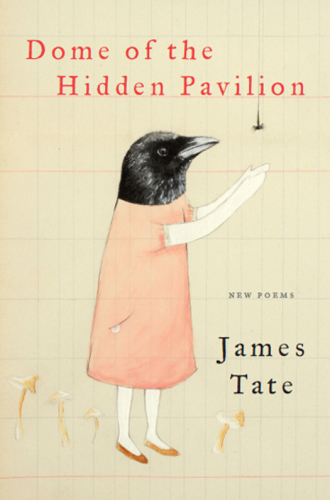
Dome of the Hidden Pavilion
New Poems
کتاب های مرتبط
- اطلاعات
- نقد و بررسی
- دیدگاه کاربران
نقد و بررسی

Starred review from July 20, 2015
Tate (1943–2015), winner of the 1991 Pulitzer Prize and 1994 National Book Award, interrupts small-town life’s sense of normalcy and stability with the absurd and the surprising in his new collection of short, narrative verse vignettes. He also manages to maintain a strong stylistic consistency without going stale—quite the feat considering the deadpan dialogue and recurring motifs, such as war and domestic spats. But Tate’s (The Eternal Ones of the Dream) masterly storytelling keeps things fresh; even when the reader can anticipate the inevitable absurdist twist in a piece, its delivery is always interesting. Sometimes the oddity is a stranger passing through: “I was sitting on the porch when I watched my neighbors’/ kids walk by on their way to school. One of them turned and waved/ to me. I waved back. That’s when I realized they were zombies.” Other times the odd man out is the protagonist’s thoughts: “My neighbor, Ted, walked over. ‘Are you all right? I saw that/ through my bedroom window. I couldn’t believe it,’ he said. ‘Oh, that was just an imaginary moose. It wasn’t a real one,’ I said.” Tate’s style will be recognizable to readers of his recent few books, but even those unfamiliar should find this whip-smart collection a joy to read.

May 15, 2015
The Pulitzer Prize- and National Book Award-winning Tate tends to write intuitive poems in which he follows words wherever they may lead. And although the words generally do lead somewhere, Tate isn't always sure where that place is. Not so in his latest. The dome (of the title) is visible as one reads these prose poems, which journey through life toward the great pavilion in the sky--or as Tate puts it, the Grand Canyon. (One poem calls the pavilion secret, while the book's title dubs it hidden.) This collection is about the journey of life and what one experiences on the way. Whether the narrator is taking a hike, summoning his dead mother, saying his prayers, or hiding in a hole, he's on his way to the grave. The writing style is plain, with few images; Tate depends heavily on word play, free association, and the vernacular. There's no beauty recollected in tranquility here, as Wordsworth might offer. VERDICT Playful to the point of silliness, Tate uses absurdity, surrealism, and humor. He fractures cliches and turns language upside down and inside out. If this is poetry--and even if it isn't--Tate certainly makes the most of it.--C. Diane Scharper, Towson Univ., MD
Copyright 2015 Library Journal, LLC Used with permission.

























دیدگاه کاربران